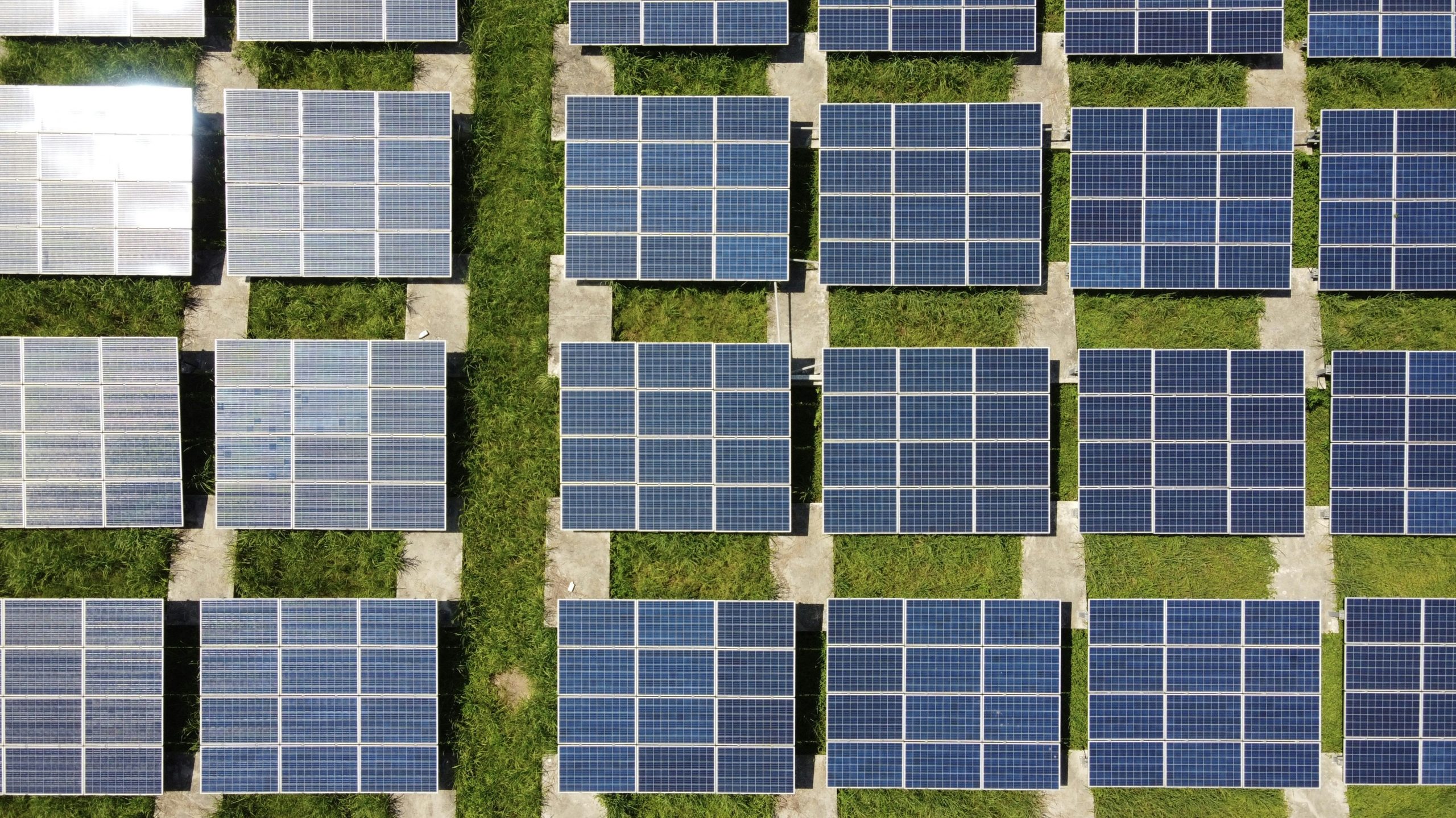In today’s fast-paced world, finding simple and effective ways to live sustainably can seem daunting, but it’s easier than we might think. By making small, conscious choices in our daily routines, we can significantly reduce our environmental impact. From opting for reusable bags and containers to conserving water and energy, our collective efforts can lead to a healthier planet. Let’s explore practical tips and easy habits that will help us lead more eco-friendly lives without overwhelming ourselves. Together, we can make a meaningful difference. What steps can we take to make our lives more sustainable without major disruptions?
That’s a question that’s becoming increasingly pressing as we witness environmental shifts, resource shortages, and global warming. The concept of sustainable living can seem daunting at first glance, but breaking it down into simpler, actionable steps can make it much more approachable. The truth is, there are many easy and effective ways to reduce our environmental footprint without drastically changing our daily routines.
Understanding Sustainability
Before delving into the how-tos, it’s crucial to understand what sustainability means. In essence, sustainable living is about making choices that ensure we meet our own needs without compromising the ability of future generations to meet theirs. It encompasses a wide range of practices aimed at preserving the natural world by minimizing waste, reducing pollution, and conserving resources.
Why is it Important?
Sustainability is essential for maintaining a healthy planet. Human activities like deforestation, pollution, and overconsumption of resources have resulted in detrimental impacts on our environment. By adopting sustainable living habits, we not only help protect the earth but also promote a better quality of life for all its inhabitants, including us.
Simple Ways to Live Sustainably
Living sustainably doesn’t necessarily require a complete lifestyle overhaul. Here are some straightforward, practical changes we can incorporate into our daily lives:
Reduce, Reuse, Recycle
One of the easiest ways to start living sustainably is by adhering to the three R’s: Reduce, Reuse, and Recycle.
- Reduce: Opt for products with minimal packaging, avoid single-use items, and purchase only what we need.
- Reuse: Repurpose containers, buy second-hand items, and use reusable shopping bags, water bottles, and coffee cups.
- Recycle: Ensure that recyclable materials such as paper, glass, and certain plastics are properly sorted and sent to recycling facilities.
Energy Conservation
Energy conservation is another critical aspect of sustainable living. Small changes can lead to significant energy savings over time.
- Lighting: Switching to LED bulbs and turning off lights when they are not needed can save a substantial amount of energy.
- Heating and Cooling: Using programmable thermostats, insulating homes, and maintaining HVAC systems can help reduce energy consumption.
- Appliances: Unplugging appliances when not in use, opting for energy-efficient models, and using devices like smart power strips can minimize energy waste.
Water Conservation
Water is a precious resource, and conserving it not only protects the environment but also lowers utility bills.
- Fixtures: Installing low-flow showerheads, faucets, and toilets can significantly reduce water use.
- Habits: Simple habits like turning off the tap while brushing teeth, fixing leaks promptly, and using dishwashers and washing machines only with full loads can make a big difference.
- Landscape: Choosing native plants that require less water and installing rain barrels to collect and use rainwater for outdoor needs helps conserve water.
Transportation
How we get around has a substantial impact on our carbon footprint.
- Public Transport: Using public transportation, carpooling, or ride-sharing reduces the number of vehicles on the road and lowers emissions.
- Biking and Walking: For shorter distances, opting for a bike ride or a walk is not only environmentally friendly but also good for our health.
- Fuel-Efficient Vehicles: For those who need to drive, choosing fuel-efficient or electric vehicles can dramatically decrease emissions.
Sustainable Eating
Our food choices have a far-reaching impact on the environment. We can make more sustainable food choices by:
- Local and Seasonal: Opting for locally-produced and seasonal foods reduces the carbon footprint associated with transportation and storage.
- Plant-Based Diet: Incorporating more plant-based meals into our diet can significantly reduce our environmental impact.
- Organic and Fair Trade: Choosing organic and fair-trade products supports farming practices that are better for the environment and workers.
Waste Management
Proper waste management is crucial for sustainability. Reducing waste can be as simple as being mindful of what we throw away and finding alternatives to disposable products.
- Composting: Composting food scraps and yard waste reduces the amount of waste sent to landfills and creates nutrient-rich soil.
- E-Waste Recycling: Properly disposing of electronic waste ensures that hazardous materials are kept out of landfills.
- Plastic Reduction: Avoiding single-use plastics and choosing products with less plastic packaging can greatly decrease the amount of plastic waste generated.
Green Cleaning
Traditional cleaning products often contain harmful chemicals that can pollute water and air. Switching to eco-friendly cleaning solutions is a simple way to live more sustainably.
- DIY Cleaners: Many household cleaners can be made from common ingredients like vinegar, baking soda, and lemon juice.
- Eco-Friendly Brands: There are numerous brands that offer non-toxic, biodegradable cleaning products.
Mindful Consumption
Being mindful of our consumption habits can lead to more sustainable living.
- Minimalism: Adopting a minimalist approach encourages us to buy less and choose quality over quantity.
- Sustainable Fashion: Supporting brands that prioritize ethical manufacturing and sustainable materials helps reduce the environmental impact of the fashion industry.
- Digital Consumption: Reducing the frequency at which we upgrade our electronic devices and opting for second-hand gadgets can diminish electronic waste.
Gardening
Gardening is a rewarding and sustainable practice that anyone can participate in, regardless of space constraints.
- Home Gardens: Growing our own fruits, vegetables, and herbs reduces the need for store-bought produce and lowers our carbon footprint.
- Community Gardens: Participating in community gardens can foster a sense of community and provide access to fresh, sustainably-grown food.
- Container Gardening: For those with limited space, container gardening is a versatile way to grow plants on balconies, patios, or indoors.

Sustainable Living in Everyday Life
We don’t have to make drastic changes to make a meaningful impact. Here are some everyday habits that can help us live more sustainably:
Conscious Shopping
By being more conscious about what we buy, we can reduce waste and support sustainable practices.
- Buy Less: Resist impulse buying and opt for items that are truly needed.
- Choose Durable Products: Investing in high-quality, durable products reduces the frequency of replacements.
- Support Green Businesses: Supporting companies and brands that prioritize sustainability helps promote environmentally-friendly practices within the industry.
Eco-Friendly Office Practices
Even at work, there are several steps we can take to live more sustainably.
- Digital Documents: Reducing paper use by opting for digital documents, emails, and cloud storage.
- Office Supplies: Choosing eco-friendly office supplies, such as recycled paper and refillable pens.
- Zero-Waste Breakroom: Encouraging the use of reusable mugs, dishes, and utensils in the office breakroom.
Community Involvement
We can amplify our impact by encouraging our communities to adopt sustainable practices.
Education and Advocacy
Educating ourselves and others about sustainability and advocating for environmental protection can lead to community-wide change.
- Workshops and Seminars: Hosting or attending workshops and seminars on sustainability topics to spread awareness.
- Social Media: Using social media platforms to share information and tips about sustainable living.
- Policy Engagement: Getting involved in local and national environmental policy initiatives.
Volunteer Work
Volunteering for environmental causes is a hands-on way to contribute to sustainability.
- Clean-Up Drives: Organizing or participating in local clean-up drives for parks, beaches, and other public spaces.
- Tree Planting: Joining tree planting initiatives to help increase green cover and combat climate change.
- Community Gardens: Volunteering at community gardens supports local food production and promotes sustainable agriculture.

Sustainable Living Resources
There are numerous resources available to help us live more sustainably.
Books and Articles
Reading books and articles on sustainability can provide valuable insights and practical tips.
- Books: “The Zero Waste Home” by Bea Johnson, “Cradle to Cradle” by William McDonough and Michael Braungart, and “The Sustainable(ish) Living Guide” by Jen Gale.
- Articles: Numerous online publications and blogs focus on sustainable living, offering advice and success stories.
Online Forums and Communities
Joining online forums and communities can provide support, ideas, and encouragement.
- Forums like Reddit’s “r/sustainability” and websites like Earth911 offer platforms for discussing and sharing sustainable practices.
- Social media groups and pages dedicated to sustainability offer regular updates and tips.
Apps and Tools
Several apps and tools are available to help track and improve our sustainability efforts.
- Carbon Footprint Calculators: Tools like the EPA’s Carbon Footprint Calculator can help us understand our carbon footprint and identify areas for improvement.
- Sustainable Shopping Apps: Apps like Good On You and Buycott help us make informed choices by rating companies on their environmental practices.
- Energy Consumption Trackers: Smart home devices and apps that monitor energy use can identify energy-saving opportunities.
Overcoming Challenges
Living sustainably comes with its set of challenges. Let’s look at some common obstacles and how to overcome them.
Cost
One of the primary concerns is the perception that sustainable options are more expensive. While this can be true in some cases, focusing on long-term savings and benefits can justify the initial investment.
- Value Over Cost: Prioritizing durability and efficiency can lead to savings over time, even if initial costs are higher.
- DIY Alternatives: Many sustainable practices, such as making cleaners at home, can be cost-effective.
Convenience
Sustainable living can sometimes be perceived as inconvenient. Integrating new habits into our routine can help mitigate this.
- Gradual Changes: Start with small, manageable changes and gradually incorporate more sustainable practices.
- Leveraging Technology: Utilizing technology and apps that make sustainable choices easier and more convenient.
Information Overload
The abundance of information on sustainability can be overwhelming. Focusing on credible sources and specific actions can help.
- Focused Learning: Choose a specific area of sustainability to learn about and implement practices related to that.
- Trusted Sources: Rely on reputed organizations and experts for information.

Conclusion
Living sustainably is not only about protecting the environment but also about creating a healthier and more equitable world. By making small changes in our daily lives, we can collectively make a significant impact. Remember, sustainability is a journey, not an overnight transformation. We can start small, stay informed, and gradually adopt more sustainable practices. The key is consistency and commitment—every effort counts. Let’s take these steps together to ensure a brighter, more sustainable future for ourselves and the generations to come.
